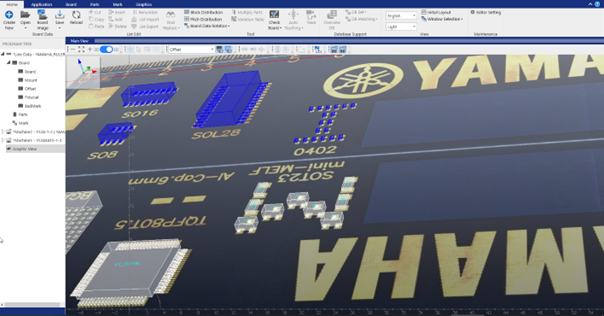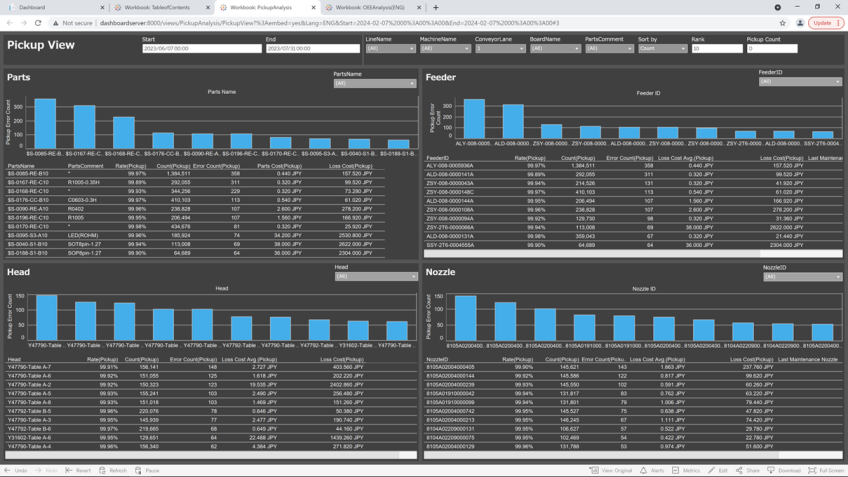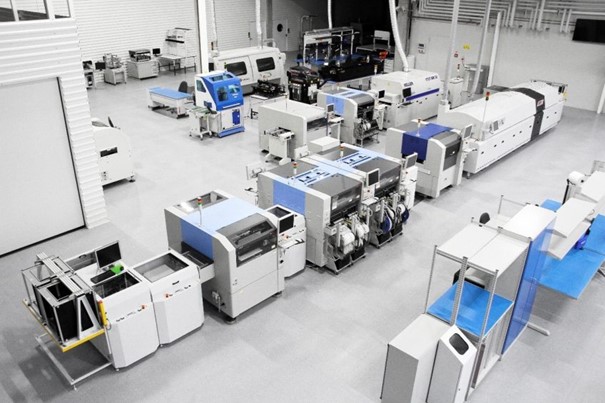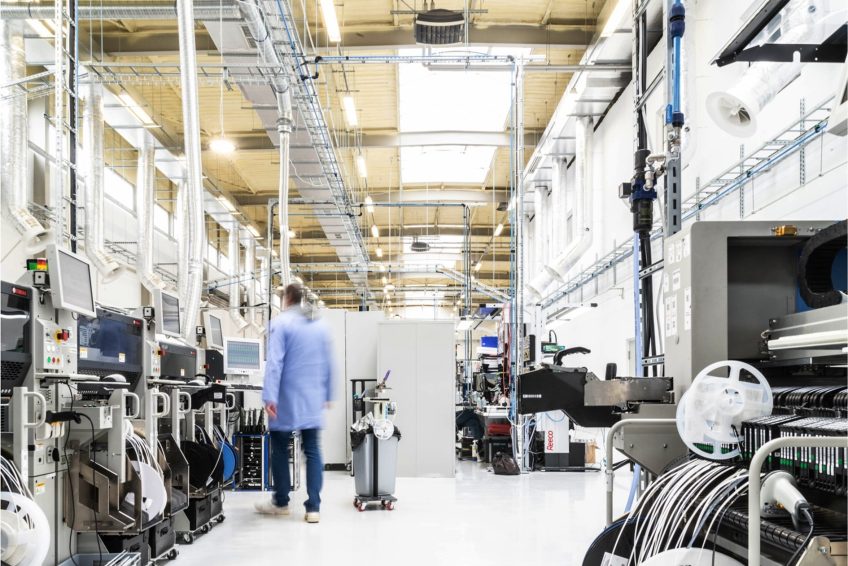A smart factory, utilizing advanced software tools, supports production teams by enabling increased productivity. This is achieved through streamlined production planning, minimized downtime, and faster problem-solving.
The term “smart factory” has become a buzzword in the manufacturing industry, often misinterpreted as a facility operating autonomously with minimal human involvement. In reality, it refers to a factory that actively supports production teams in achieving goals and minimizing waste. Waste in various forms degrades overall production efficiency.
Smart factories combat this issue by helping to shorten often time-consuming tasks, ensuring faster order fulfillment for customers, and supporting machine programming and setup, accelerating the introduction of new products and ensuring their optimal use. The smart factory also collaborates to anticipate problems, such as equipment errors or depleted components in feeders, thus ensuring continuous, efficient production and the highest possible end-of-line performance.
In this context, a smart factory is defined as a manufacturing plant equipped with advanced tools that provide intuitive support for planners and production teams to ensure that every shift can achieve optimal efficiency. A significant part of the added value in a smart factory is associated with software-based tools that aid in planning and optimization, process management, and real-time problem response during production.
Data generation
The new generation of tools for smart factories helps significantly speed up labor-intensive and time-consuming processes such as generating component data. One example is Yamaha’s YSUP-PG visual data editor, which allows simultaneous display of component information and visualization, simplifying the process of creating and editing their identifiers. This saves programmers time and reduces the need to switch between different screens and remember information each time, which is typically a source of frustration. Additionally, the screen assembly function helps verify whether components are correctly placed relative to the design long before the boards are assembled.

Using advanced 3D rendering techniques with high-performance graphics processors allows for more detailed visualizations of the final assembly than ever before. This highlights any issues that may require resolution in a way that previous development environments could not achieve. In the past, inaccuracies in component data could go unnoticed until the first boards reached inspection or testing. Moreover, production equipment, such as component placement machines, facilitates data generation by supporting automatic creation of component pick-up data.
Production optimization with smart factory tools
Smart factory tools offer advanced capabilities to optimize production efficiency and equipment utilization. Planners have long sought to consolidate the production of assemblies that can use the same type of solder and soldering profile to save on printer and soldering oven setup changes. Waiting for the reflow oven temperature to stabilize between product changes can significantly prolong production line downtime.
The challenge is identifying products that can be produced together to increase efficiency and minimize time spent on setup and reconfiguration. This requires planners to simultaneously consider many variables. The YSUP-PG Line Optimizer tool uses an algorithm that minimizes production losses related to setup, adapting to the capabilities of various equipment models on the line. Moreover, YSUP-PG Production Planner offers a grouping function, allowing products to be assigned to groups based on common components and equipment settings, considering their production schedules and shipping plans. This enables operators to manage the grouping process and set priorities based on computational tools. Compared to manual grouping, automating this process increases efficiency, reduces the need for group changes and the number of required carts and feeders by 25%, and saves over 80% of the time spent preparing data.
Another factor that can be improved through automation is managing materials with limited shelf life, such as solder paste and moisture-sensitive components, which may exceed the maximum allowable exposure time if their validity is monitored manually. Smart factory tools transfer this responsibility to the machines on the line, identifying and eliminating expired components to ensure production meets the highest standards.
Production process analysis
During production, the smart factory provides real-time assistance, actively monitoring progress and ensuring that raw materials are sourced from inventory and delivered to the appropriate places at the right time. This ensures uninterrupted production without unnecessary downtime while informing operators of any issues requiring intervention.
Advanced data analytics underpin tools that precisely identify defect causes, eliminating the need for guesswork. An example is the YSUP package, whose latest user interface update, Dashboard, introduces advanced component pick-up analysis, automatically recognizing the causes of detected errors. The system tracks irregularities depending on the head, feeder, and nozzle, then analyzes the status of other elements assigned to the same components to determine whether the problem is equipment- or component-related. Such rapid analysis saves production management time and concerns related to problem-solving, eliminates costs associated with trial and error methods, and accelerates the restoration of full productivity. As a result, each production shift can maintain high efficiency and end-of-line performance, significantly reducing downtime.
The error pick-up analysis dashboard not only identifies causes and proposes solutions but also recognizes patterns of frequently occurring errors and estimates costs associated with component losses, helping prioritize repairs. Service teams benefit from detailed information about feeder and nozzle issues, component pick-up performance, and trends, allowing remote diagnosis of error causes and planning optimal repair or calibration times.

Enhancing factory intelligence through connectivity
A key element of a smart factory is the coordination between production processes and enterprise software controlling high-level business operations. This integration allows IT sector analytics applications to optimize business planning and continuously improve by accessing data from factory devices. Modern APIs, including JSON and REST, facilitate data exchange between IT and production departments. The Yamaha YSUP-LINK connectivity package for smart factories supports these API standards and is fully compatible with the open IPC-CFX standard, enabling efficient machine-to-business and business-to-machine communication.
Transition to smart factories
The transition to smart factories aims to automate tasks traditionally labor-intensive and complex. Advanced software tools, utilizing the latest data analysis techniques, are key elements enabling this transformation. They can increase productivity by shortening time-to-market for new products, improving production efficiency and equipment utilization, and minimizing the impact of potential errors. The emergence of smart factories paves the way for future generations of software tools that will continue to accelerate technological progress.
The YsUP Yamaha system revolutionizes SMT production, offering advanced features such as simplified programming, process optimization, and intelligent setup operations. These solutions significantly enhance the efficiency of the assembly process, continuing Yamaha’s tradition of creating innovative technologies that improve efficiency and quality in the electronics industry.
The RENEX Group, as Yamaha’s distributor, plays a crucial role in bringing Yamaha’s innovations to Central and Eastern European markets, including the YsUP system. As the exclusive distributor of YAMAHA SMT and YAMAHA Robotics in Poland and the region, RENEX provides direct access to these devices and other products from the portfolio. These devices are available for viewing and testing at the RENEX Technology Center, allowing practical trials of their capabilities with your own components.
In addition to supplying equipment, the RENEX Group offers support in fully utilizing the capabilities of the YsUP Yamaha system, organizing training sessions, and providing technical support. This enables electronics manufacturers to significantly enhance their efficiency and quality, leveraging the most advanced technological solutions available.

